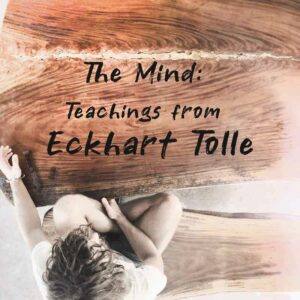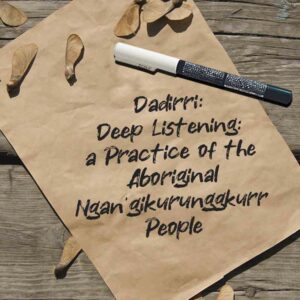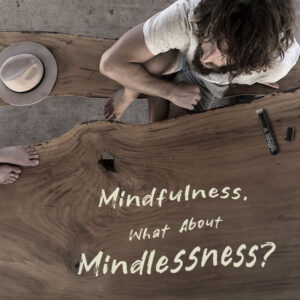Every human mind is an intricately woven tapestry of abilities, skills, senses, and experiences. Yet, we often condense this rich diversity into binary terms like “smart” and “dumb”. This perspective, while common, can be a gross oversimplification of the myriad forms of intelligence we possess. It reveals more about the critic’s limited understanding of intelligence than about the person being criticised.
Exploring Intelligence: The Work of Pioneers: Gardner and Robinson
Our exploration of intelligence cannot be complete without referring to two pioneering scholars in the field, Howard Gardner and Sir Ken Robinson. Gardner’s Theory of Multiple Intelligences has shattered the monolithic notion of intelligence by proposing eight distinct types, while Robinson has emphasised creativity, uniqueness, and dynamism in intelligence.
Gardner’s eight types include linguistic, logical-mathematical, musical, bodily-kinaesthetic, spatial, interpersonal, intrapersonal, and naturalistic intelligences. He later suggested the existence of an existential intelligence, devoted to deep philosophical ponderings. Robinson, on the other hand, argued that intelligence is as diverse as our experiences, as dynamic as our contexts, and as unique as our identities.
Gardner’s: linguistic, logical-mathematical, musical, bodily-kinaesthetic, spatial, interpersonal, intrapersonal, naturalistic intelligences, and existential intelligence.
Considering the sheer range of intelligences identified by Gardner and Robinson, it becomes clear that labelling someone as “dumb” is a gross misunderstanding and undervaluation of the human capacity. What this label often reveals is a narrow perception of intelligence, one primarily restricted to linguistic and logical-mathematical abilities.
Instead of assigning restrictive labels, we should celebrate our multifaceted intelligences. Each one of us excels in different areas. Some may possess a knack for understanding and relating to others – a sign of strong interpersonal intelligence. Others may have an uncanny ability to interpret and produce music, showcasing their musical intelligence. Often, what is deemed as “dumb” might just be an expression of a different kind of intelligence.
Robinson suggested that intelligence is as diverse as our experiences, as dynamic as our contexts, and as unique as our identities.
Redefining Intelligence: Beyond Traditional Bounds
The Oxford Dictionary defines intelligence as: the ability to learn, understand and think in a logical way about things; the ability to do this well.
If Robinson and Gardner were to come together for a discussion, I believe their collaborative definition of intelligence could potentially be as follows:
‘Intelligence is the diverse capacity to solve problems, create, adapt, and learn in ways valued across cultural settings. It encompasses distinct types including linguistic, logical-mathematical, musical, spatial, bodily-kinaesthetic, interpersonal, intrapersonal, and naturalistic intelligences. Further, it involves creativity, curiosity, and the ability to flourish amid change. Intelligence isn’t singular or fixed, but plural and dynamic, respecting each individual’s unique cognitive strengths and potential.’
A Symphony of Senses: Intelligence Beyond the Traditional Five
Our array of senses, typically considered distinct from intelligence, intertwine closely with our cognitive abilities. Humans have more than just the five traditionally recognised senses – sight, hearing, taste, smell, and touch. We have at least thirteen recognised senses. These include thermoception (sense of temperature), nociception (sense of pain), equilibrioception (sense of balance and spatial orientation), proprioception (sense of body position and movement), interoception (sense of internal physiological state), vestibular sense (sense of body movement, direction, and acceleration), and chronoception (sense of time). There is ongoing debate that whether humans possess magnetoreception (sense of magnetic fields), among others. Our sense of balance, body position, and movement, often underappreciated, ties directly into our spatial and bodily-kinaesthetic intelligences. These senses provide a constant flow of information that our brains interpret, integrate, and react to, contributing to our vast cognitive abilities and diverse intelligences.
IQ Testing: A Narrow Lens on Intelligence
Conventional IQ testing further compounds this issue. While IQ tests measure certain aspects of intelligence, such as logical reasoning, pattern recognition, and verbal skills, they largely neglect other forms of intelligence. They fall short in assessing musical, spatial, bodily-kinaesthetic, interpersonal, and intrapersonal intelligences. These tests, therefore, provide a limited, skewed view of human intelligence, which can lead to erroneous labelling and undervaluing of individuals’ true potential.
IQ tests mainly focus on evaluating logic, pattern recognition, and verbal skills, leaving out important areas like musical, spatial, bodily-kinaesthetic, and interpersonal and intrapersonal intelligences.
The Phenomenon of Savants
In this light, the phenomenon of savants provides a compelling perspective. Savants, individuals displaying exceptional abilities often alongside neurodevelopmental disorders, challenge our conventional wisdom about intelligence. Their profound capacities in areas such as memory, music, or mathematics exist alongside significant cognitive impairments. This striking contrast within the same individual reiterates the fact that intelligence is not a single, universally applicable measure but a spectrum of varied capabilities.
*
In my journey to appreciate the varied facets of human intelligence, I have consciously removed the term ‘dumb’ from my vocabulary. It is a word that paints an unjust, incomplete picture of a person’s intellectual capacity. By adhering to the belief that every individual holds a unique blend of intelligences, I affirm that the word ‘dumb’ lacks the depth and nuance required to define or describe human intelligence. It is my conviction that the use of this term belittles the diverse strengths and potentials inherent within us all. Through eliminating ‘dumb’ from my vocabulary, I intend to honour the richness of human intellect in its many forms, fostering a broader and more inclusive understanding of intelligence.
Understanding and accepting our varied intelligences and senses can usher in a more inclusive, diverse comprehension of human potential. The term “dumb” becomes redundant in this scenario, replaced by an appreciation of the multiple ways people can be intelligent. Let us strive to shed our preconceived notions and embrace a richer, more nuanced view of intelligence, honouring the unique cognitive tapestry that makes us all beautifully intelligent in our own ways.

Nils Strohbeck
Connect
A Perfect Coup: Pharmaceutical Industry’s Hold on Healthcare
A dive into industry's extensive influence
Lead and the Fall of the Roman Empire: Welcome the ‘Aluminium Age’
How Aluminium is Affecting Our Health









